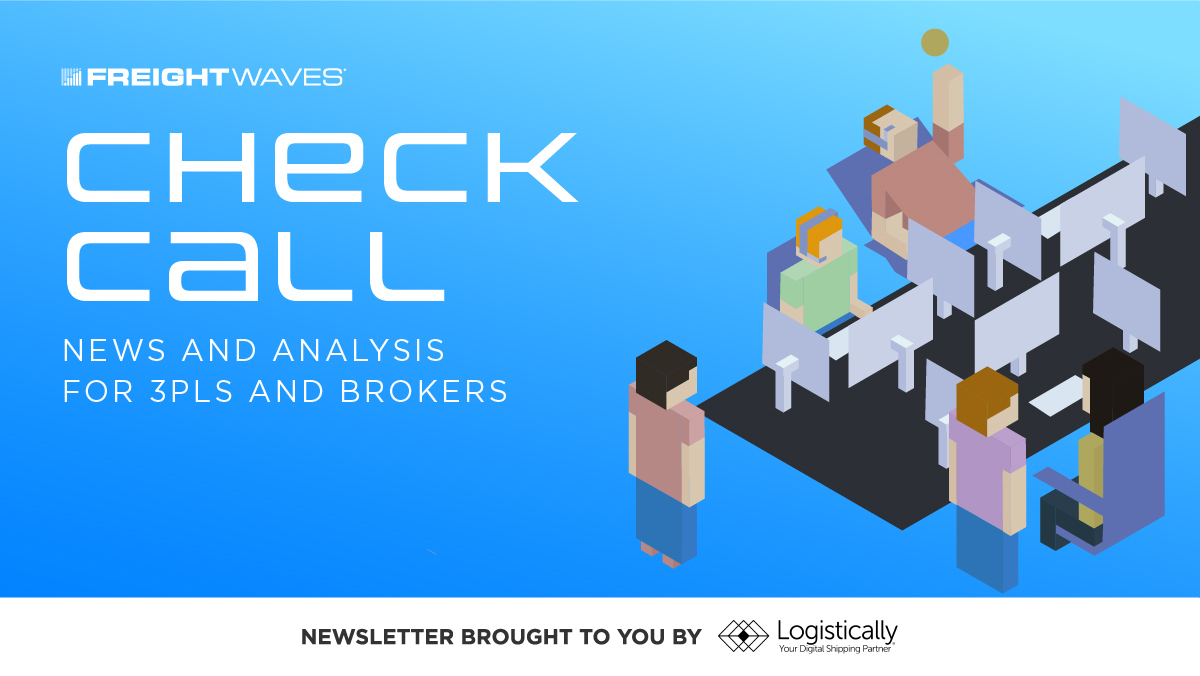Welcome to Check Call, our corner of the internet for all things 3PL, freight broker and supply chain. Check Call the podcast comes out every Tuesday at 12:30 p.m. ET. Catch up on previous episodes here. If this was forwarded to you, sign up for Check Call the newsletter here.
Inside this edition: being a better prospector, transportation costs at a minimum, and FedEx has new toys.

Looking for gold. Prospecting is different from just cold calling all day every day. When you find a prospect, don’t just call them immediately, keep looking for prospects. Group your calls and prospecting time together. When you are ready to call, group like prospects together. For example, when you call on consumer packaged goods, don’t call steel shippers immediately after. Working one industry at a time lets you learn from each prospect what the problems in the industry are, and by the last call you’re an expert who can easily clinch that second phone call.
Where to start? Every day there is a new industry with a shortage — most recently tampons and baby formula. Those with issues now are going to be decent targets to work your way back from. Cotton shortage for a tampon shipper? Roll back farther: What led to the shortage of cotton at the receiver — poor transportation, poor forecasting or just a straight-up shortage of crops coming out of the ground? Knowing what is going on in an industry allows you to get past the “Who are you and what are you selling” part of the conversation. Showing that you’re up to speed on the industry and ways to prevent something like this from happening again will work better than just, “I can solve all of your problems.”
The sweeter the fruit. Produce season can destroy an entire state in one afternoon. The thing with produce season harvesting is no one really knows when it’s going to happen. There’s a general timeline, but the day those farmers pick the fruit out of the ground is uncertain. Starting your prospecting three to four months ahead of harvest season means you’re the backup, which is great when someone inevitably messes up. The U.S. Department of Agriculture has a seasonal produce list that is a good start. Then when it comes down to location, look up when it’s time to harvest a given crop. It’s not a guarantee but it’s a start in something that would otherwise be a fruitless endeavor.

Save that cash. Everyone and their brother has felt the pressure of keeping transportation costs low. It’s one of the top reasons a shipper will utilize a 3PL or freight broker. That is easier said than done as of the past two years. Seeing as how we are in the beginning stages of a recession, it’s unclear what may happen with business costs. One of the ways everyone loves to combat those inflated costs is to pass them along to the person who pays the bills. It’s the oldest trick in the book. If you get a 10% increase from a carrier, well, just pass on 10% or even 7% to the customer so you aren’t left eating the full increase.
Charge it. Something that carriers are starting to explore is the concept of a “year-round surcharge” also known as a demand surcharge. LTL carriers have been doing something similar for a while. When freight gets too bogged down in specific regions, suddenly it’s twice as expensive to move freight out of that region. Knowing where carriers face the tightest capacity constraints, not just for full truckload shipments, can save any account that is teetering on the edge of being unprofitable. Swapping an alternative carrier that might not have been on the original routing guide could be worth the potential haggles of setup, especially if you can save thousands on a month’s worth of shipments. Transit times might be longer, but in the end those are things that can be worked around cost.

TRAC Thursday. The TRAC lane of the week is Omaha, Nebraska, to Indianapolis. Omaha continues to be an outlier when it comes to outbound tender rejections.The national average OTRI is 6.19% and Omaha is more than double that at 15.69%. Only about 85% of contracted freight is getting picked up. Rates aren’t out-of-the-park amazing so it’s not worth moving any extra capacity there. It’s just important to know that capacity is tight and the higher the lead time the better. Otherwise shippers risk freight not getting picked up. As long as Omaha’s outbound tender rejections continue to be the outlier, on the high end, spot rates will continue to be above the National Truckload Index.

Who’s with whom. FedEx Corp has agreed to purchase $200 million in warehouse robotics products and services from Berkshire Grey in exchange for warrants representing 25 million shares of Berkshire Grey Stock.The stock warrants will vest incrementally for FedEx and be fully vested on completion of the robotics contract, which is slated to conclude by 2025. As FedEx strives to improve warehouse efficiency, the expansion of its robotics and AI capabilities will ideally result in quite an improvement in the bottom line.
Quotable moment from Brian Straight’s article: “Our growing relationship with Berkshire Grey for robotic automation is a direct response to the growth of e-commerce, which has accelerated the demand for reliable automated solutions throughout all stages of the supply chain,” said Rebecca Yeung, corporate vice president of operations science and advanced technology for FedEx. “FedEx believes that continued innovation and automation will improve efficiency, productivity and safety for its team members as they continue to keep the global supply chain moving.”
The More You Know
Why Atlas Air has become tempting takeover target for investors
Saber-rattling in Taiwan Strait stokes new supply chain threat
Nikola finally gets the votes to pass its share proposal
Gig driver for a day. Here’s what we learned making deliveries for Veho










